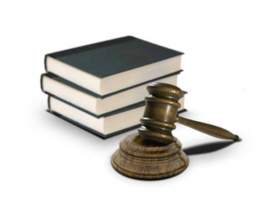
Read this Before Filing Bankruptcy In Natural Disaster Emergency

Related Forms
Schedule B - Personal Property
Schedule C - Property Claimed as Exempt
Schedule D - Creditors Holding Secured Claims
Schedule E - Creditors Holding Unsecured Priority Claims
Schedule F - Creditors Holding Unsecured Nonpriority Claims
Schedule G - Executory Contracts and Unexpired Leases
Schedule I - Current Income of Individual Debtor(s)
Schedule J- Current Expenditures of Individual Debtor(s)
Summary of Schedules (Includes Statistical Summary of Certain Liabilities)
View AllDebtors should not plan for bankruptcy. By this, it is neither implied that individuals who cannot make payments on credit installments and loans should fail to consider it as an option, nor suggested that they go into the bankruptcy filing process blindly. At the very least, there are prerequisites to declaring bankruptcy, notably the mandatory credit counseling.
One would expect to see a sharp rise in bankruptcy filings after a natural disaster, such as an earthquake or cyclone. Such was the case with the aftermath of Hurricane Katrina, which saw widespread disintegration of the levees safeguarding the City of New Orleans, and by extension, much of the property within.
It is no stretch to say that many residents' homes and their very livelihoods were destroyed by the storm, and for people that could not afford insurance (which likely would only cover a portion of the total damage), it indeed put them in dire straits. It is thus no wonder that so many people with such perilous financial situations would first to look to bankruptcy, planning to file as soon as they got the chance.
Expectedly, there are mitigating circumstances at work here. For one, the events surrounding Hurricane Katrina transpired around the same time that an overall spike was plotted for Americans in declaring bankruptcy, out of nervous fear of the changes the BAPCPA would effect (among them, the use of the means test as a basis for Chapter 7 eligibility and an increase in the cost of bankruptcy for mandatory counseling).
On the other hand, seeing as insurance and basic first-order needs were difficult for New Orleanians to satisfy at the time, the preexisting cost of bankruptcy was such that, ironically enough, some were too broke to file for bankruptcy. In light of this, bankruptcy filings could have been yet more numerous.
Still, even with all of the calamity that people may face as described above, they are still advised to think long and hard about filing for bankruptcy. Of course, immediate considerations like the cost of bankruptcy do come into play, as well as the long-term considerations of how long filing for bankruptcy may stay on one's credit history.
As for concrete solutions to financial woes, meanwhile, people may look to swallowing their pride and accepting public assistance amidst bankruptcy planning. In addition, while it is not usually preferred that people try to get out of their debts, in light of extraordinary conditions and severe monetary deficits, some might actually go the "do nothing” route.
NEXT: Read This When Bankruptcy and Divorce Coincide



















